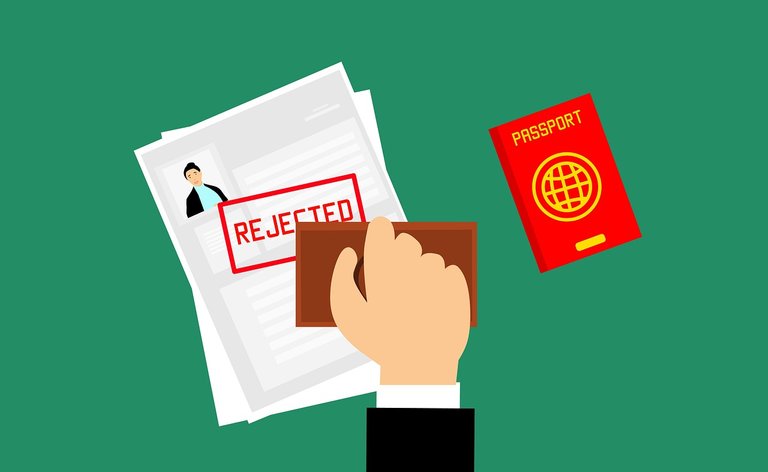 (License: Public Domain]:
Flickr
(License: Public Domain]:
Flickr It might sound unbelievable, but as far as I'm concern leprosy is one sickness I really got to hear about mostly in church sermons. Indeed quite a number of biblical characters actually suffered from this ailment. From Miriam (the sister of Moses), to Naaman, to King Uzziah; the list is endless. However, the first time I ever saw someone affected with leprosy was when I went to visit one of my paternal cousin who's a student of nursing science department in University of Calabar. Well, in this part of the world there's always a compulsory internship program for University students studying any course that pertains to the human physiology. Since they will be dealing with lives later on, the main reason for this program is so the students to an extent be equipped practically and not only theoretically. The designated period of time for the internship do varies depending on the medical course. At the same time, one thing each of these medical courses do have in common is that the internship is considered a necessity for students before they can graduate from the University.
In the case of my cousin, she decided to spend her 6 months internship at Qua Iboe Church Leprosy Hospital Ekpen Ebom, in Akwa Ibom State. Although her family also based in Akwa Ibom State and were really excited about the fact that she was now close to them; that notwithstanding, they weren't in support of the kind of hospital she applied for. From what her parents told me, I could deduce that the thought of their only daughter having physical contact with people regarded as outcast sounded a little bit kooky to them. As a matter of fact I'm pretty sure their fears were triggered as a result of the scary things they've been hearing about the sickness. Funnily enough, my cousin is a hardheaded lady and whenever she sets her heart on a thing, nothing anyone would say to discourage her will make much sense. That's why even when her dad tried to force her by refusing to help her financially in the first month at the leprosy hospital; she was still exhibiting that unyielding spirit.
The truth is, unlike fathers, Nigerian mothers have fragile ego so I wasn't surprised when my aunt called me to drive her to the leprosy hospital where my cousin worked as an intern. In spite of the fact that I've never been to that particular part of the world before, all thanks to Google Map app we got there in no time. Out of curiosity you may be eager to know why we didn't ask my cousin for directions. The answer is, we wanted our visit to be a surprise but I didn't know that a truckload of surprises was also waiting for me. The experiences I had that day was what prompted me to read more on leprosy immediately I got back home. From the little knowledge I could gather I must confess, we've been really maltreating victims of leprosy. At this point I'd love to say that the main aim of this article is to correct most of these wrong ideas and beliefs as well as suggest approaches we could adopt to make life worth living for them.
Lets start with the common leprosy misconceptions
 (License: Public Domain]:
Pixabay
(License: Public Domain]:
Pixabay While treating the topic 'vectors' back then in elementary school and even when I got to junior high school, my basic science teachers really emphasized that cockroaches are the causal organisms for leprosy; hence the need for environment sanitation. To be very honest, this wasn't just their own idea, I even saw it in textbooks. But based on findings from several research studies, this is a complete fallacy. There's absolutely no connection whatsoever between cockroaches and leprosy. According to Center for Disease Control and Prevention, experts assert that the leprosy ailment is caused by a long-term infection with the slow-growing bacteria called Mycobacterium leprae. I still can't understand how cockroaches came into the picture. On a lighter note I'm probably thinking that since pronouncing the name Mycobacterium leprae would definitely be a hard nut to crack for the young students, cockroaches had to be falsely accused. But the sad thing is that a lot of people grew up with this ignorance.
Another misconception that is eminent happened to be the issue of transmission and treatment of leprosy. These are very vital concepts that even if I should overlook every other thing, I wouldn't skip highlighting on them. As uncomfortable as it might sound, the mere fact that this ailment is highly contagious doesn't mean you'll contract it from a casual contact. Unfortunately, you'll agree with me that it's almost impossible to see someone who's not suffering from leprosy sitting next to victims of this disease, not to talk of shaking hands or hugging. For the sake of clarity, it might interest you to know that even scientists are still not certain about the factors or methods that help in spreading this ailment. So don't think it’s your high level of stigmatization that's keeping you safe from getting infected. For most experts, they believe that the disease-causing bacteria are housed in victim's respiratory droplets. Since these things are airborne, there are easily circulated when one coughs or sneezes. Howbeit, our main emphasis is on the fact that leprosy isn't transmitted during casual contact unlike what's popularly believed.
Furthermore, its high time people let go of the idea that leprosy has no cure as well as stop the inhumane action of chasing infected persons to deserted places instead of taking them to recommended leprosy hospitals. To a great extent its erroneousness and lame to think that dumping a victim of leprosy in a place devoid of life is a solution to the problem. The truth is, avoiding contact with affected persons might save you from the sickness, but will also make the victims destitute. Believe me when I say that this single act is enough to worsen their physiological and psychological health. Rather than neglect infected persons, why not take them to the leprosy hospital where they'll be adequately treated and care for. As a matter of fact you really don't have any excuse because leprosy treatment is entirely free and with at least 6-12 months of multi-drug therapy an individual can be healed completely. The healing process is even faster if the treatment is carried out early enough. Now you see how irrational we've been all these years.
Leprosy doesn't make one a leper; the society does.
 (License: Public Domain]:
Pixabay
(License: Public Domain]:
Pixabay From all what I've said so far, you can imagine the level of depression victims of leprosy go through on a daily basis because of how they're being stigmatized. With the way the society treats them you'll agree with me that this kind of life is entirely suicidal. In actuality, we can compare it to a feeling of being alive but not wanted. Well, taking a closer look I came to realize that it shouldn't be so. These individuals may be leprous but at the same time they're also humans and they deserve all round happiness.
On the contrary, the stigma attached to this disease by the society is what has brought about the discrimination and prejudice against persons living with leprosy. Now, let me make it a little bit clearer. There's something that has been overlooked and I feel I should point it out. It's the issue of calling victims of leprosy lepers. You'll probably argue with me if I say that it is wrong; so, I'd rather prove why i think it's wrong. According to Merriam Webster dictionary, "a leper is someone who is disliked and avoided by other people in the society". From the definition, it's clearly visible that leprosy doesn't make one a castaway; rather, this unfair treatment is triggered as a result of the misconceptions we discussed earlier. I believe if the society is enlightened, people will begin to understand that victims of leprosy deserve to be loved and not disliked; welcomed and not avoided.
The way forward
 (License: Public Domain]:
Pixabay
(License: Public Domain]:
Pixabay It's another 27th of January, a day set aside by the World Health Organization (WHO) to make leprosy victims feel special and loved, as well as sensitize the entire public on the basic concepts of the ailment. On a day like this infected persons get to know that they can still live a normal life without any form of disability if they treat the disease early enough. Like I said earlier, treatment is entirely free so you don't have an excuse. At the same time, I'd love to point out that the World Health organization and the government will never reach the desired goal if we don't contribute our little quarter to the leprosy project. It doesn't necessarily mean that the contribution is limited to finance. A little act of love shown through awareness programs, distribution of relief materials, or online sensitization is enough to make a huge difference. Together, we can reduce the incidence of leprosy and also make life more meaningful for persons affected with this disease. Well, I sincerely hope you've learned something from this article. Thanks for doing this with me. Till next time!
To read more about this topic, check out these REFERENCES
Leprosy from wikipedia.org
Overview of leprosy from national organization of rare disorders
Leprosy elimination from world health organization
understanding leprosy from family doctors
Images are from flickr and pixabay all licensed under creative commons and eligible for commercial use.
Congratulations @yhubi! You have completed the following achievement on the Steem blockchain and have been rewarded with new badge(s) :
Click here to view your Board
If you no longer want to receive notifications, reply to this comment with the word
STOPTo support your work, I also upvoted your post!
Congratulations @yhubi! You received a personal award!
Click here to view your Board